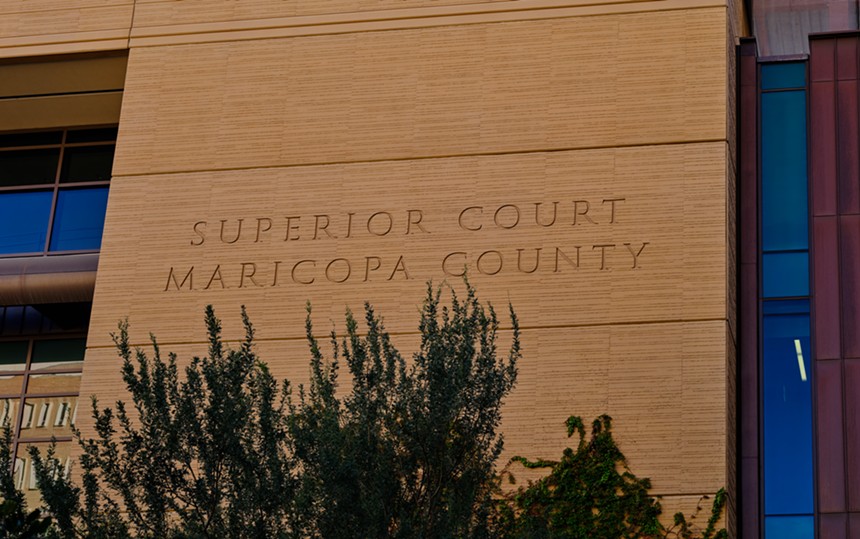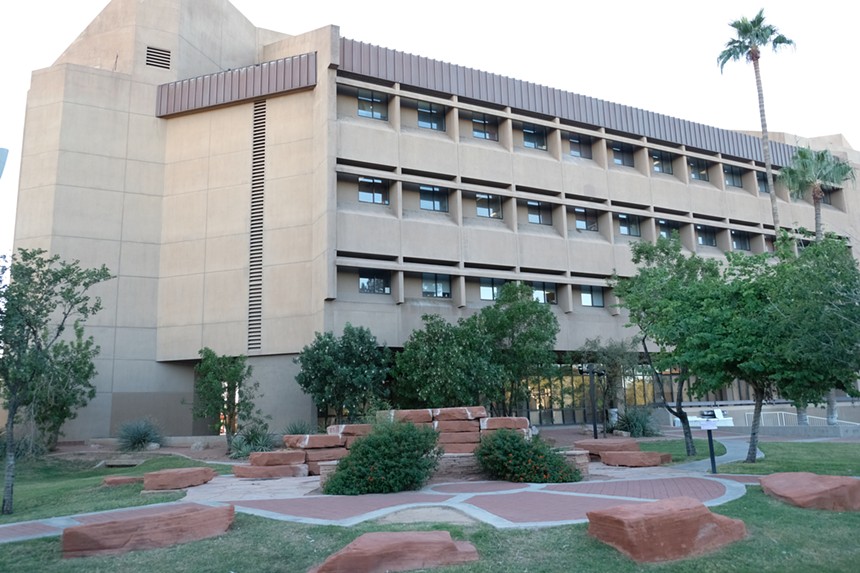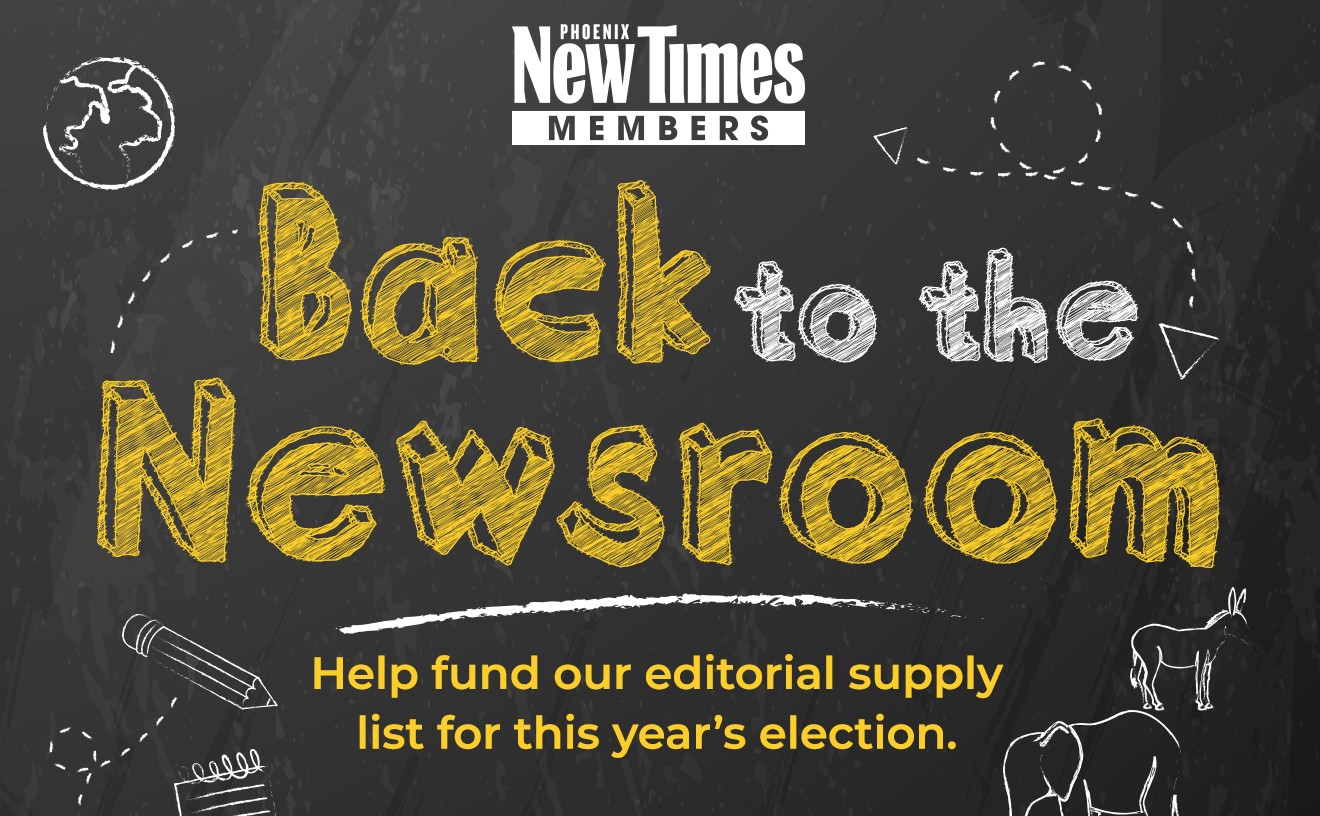Worker Power is the political action committee backing the initiative, which is dubbed the Hotel and Event Center Minimum Wage and Wage Protection Act. The PAC claimed Glendale and City Clerk Julie Bower unjustly denied the measure, even though the organization turned in 8,900 petition signatures from voters who support the initiative — almost 50% more than the required number.
The initiative proposes a $20-per-hour minimum wage baseline for hotel and event center employees and outlines details for yearly pay increases and overtime earnings, among other provisions. It would cover employees of any hotel within city boundaries as well as workers at event centers larger than 20,000 square feet. This includes concert halls; stadiums, such as State Farm Stadium, the home of the Arizona Cardinals; and convention centers.
But it’s the measure’s many provisions that led Bower and the city to reject it on constitutional grounds. According to the city, the measure failed to comply with the Arizona Constitution’s single-subject rule, which requires proposed ballot initiatives to address only a single issue and express those issues in its title.
Worker Power’s lawsuit contends there is no violation because all the initiative’s provisions are related to the pay of hotel and event center workers.
“The City has no legitimate basis for rejecting the initiative signatures,” Brendan Walsh, the executive director of Worker Power, said in a press release. “It is clearly an antidemocratic measure taken in the service of hospitality industry employers and against the interests of working people in Glendale.”
The city of Glendale could not be reached for comment. Worker Power replied to an emailed list of questions from Phoenix New Times, although the organization’s answers mostly parroted its own press release.
Worker Power requested a preliminary injunction from Judge Scott McCoy, while Glendale asked McCoy to dismiss the suit. Additionally, the Arizona Lodging and Tourism Association and the American Hotel and Lodging Association filed friend of the court briefs in support of the city’s position.
McCoy granted the preliminary injunction on Monday, ordering Glendale and Bower to process the initiative and prepare it for the November ballot. His ruling does not guarantee the initiative makes the ballot but only allows it to be processed while the case's larger questions are decided.
At issue is not whether the proposed law would be good policy for Glendale — the city’s voters would decide that if it makes the ballot — but instead whether it checks the correct constitutional boxes to merit ballot inclusion in the first place.

Worker Power, a political action committee behind a ballot initiative to raise the minimum wage for hotel and event center workers, is asking a Maricopa County Superior Court judge to force Glendale to put the proposed law on the November ballot.
Tony Webster
‘Insufficiently related’
Filed on July 19, Worker Power’s lawsuit claimed Bower and the city applied too narrow a definition of the constitution’s single-subject rule in barring the initiative from the ballot.In its motion to dismiss, Glendale claimed the proposed law’s title was too broad and did not sufficiently inform voters of what the law contains. Additionally, the city argued that the initiative’s provisions are “insufficiently related to one another.”
The bill does have a litany of provisions. It would:
- Raise the minimum wage for hotel and event center workers to $20 an hour, with a yearly adjustment for cost-of-living increases
- Set a baseline number of rooms attendants can clean per day before receiving overtime pay
- Outlaw requiring hotel and event center employees to work more than 10 hours per day without written consent
- Mandate that 100% of hotel service fees be passed on to the workers providing those services
- Establish a city labor standards agency to investigate violations of the new law and penalize violators
“It strains credulity,” Worker Power wrote in its reply, “to argue that a department dedicated to enforcing a right to a higher wage is unrelated to that right or somehow unrelated to ‘wage protection.’”
Notably, Glendale’s interpretation of the single-subject rule is much narrower than the courts have applied recently. Last month, a Maricopa County Superior Court judge rejected a lawsuit that challenged the constitutionality of the controversial Secure the Border Act, which was referred to the November ballot by Republican state lawmakers.
That law contained several loosely related provisions — arguably more loosely related than those in Worker Power’s initiative — including making it a state crime to enter the country illegally and upping the penalties for selling fentanyl. However, a county judge decided that all of those provisions are related to the general subject of “responses to harms related to an unsecured border.”
Several immigrant advocacy groups have urged the Arizona Supreme Court to weigh in and overturn that ruling.

Worker Power contends that the Glendale city clerk acted outside her authority when she rejected a ballot initiative because it violated the single-subject rule of the Arizona Constitution.
Katya Schwenk
‘They have their agenda’
Worker Power’s suit asked the court to require Bower and the city to continue the process of putting the initiative on the ballot, suggesting the organization would suffer irreparable harm if the proposed measure is unlawfully prevented from going before voters. In granting the injunction, McCoy agreed on that point.The suit also claimed that Bower acted outside her authority as city clerk by making the judgment herself to reject the initiative on the basis of the single-subject rule. However, considering two hotel trade organizations have filed briefs in support of the city, it seems likely that the proposed law would have wound up the subject of civil litigation even if placed on the ballot.
Indeed, Arizona’s hotel industry appears firmly against the proposal. Both in a press statement and in court documents, the Arizona Lodging and Tourism Association claimed the bill would harm the economy, forcing hotels to drive up room prices and deter tourists.
“A new wage mandate on the tourism sector will cause prices to spike and cost jobs, hurting the very people the union-backed proponents claim they represent,” said AzLTA President and CEO Kim Grace Sabow in an emailed statement. “The Glendale tourism industry is thriving with so much to offer for visitors while creating great, well-paying jobs. Why would we want to put all that at risk?”
Clearly, Worker Power and other advocates see the bill as a matter of fairness. Last year, the U.S. Bureau of Labor Statistics reported the average wage for metro Phoenix “maids and housekeeping cleaners” is $17.18 per hour. That’s roughly 50 cents more than the national average, but proponents of the bill say the amount still leaves many employees living paycheck to paycheck, often working multiple jobs to pay for necessities.
In his press release, Walsh said, “Glendale has repeatedly taken steps to prioritize the profits of businesses over working-class residents who power its burgeoning hospitality industry.”
The press release also included a quote attributed to Glendale homeowner Ana Martinez, who said signing the petition gave her hope that the workers who help fuel the city’s thriving hospitality economy would finally be treated fairly. She said she was disappointed that the city blocked the initiative.
“Every time residents try to take steps to shape how Glendale develops, the city doesn’t seem to care,” Martinez said. “It’s like they have their agenda, regardless of what would be good for most residents.”












